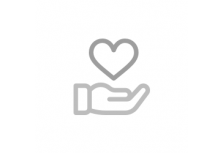The transition out of high school for individuals with autism requires comprehensive life
skills preparation that are unique to those with autism that is not currently available.
Our scope of our program encompasses the following areas:
Financial Skills
Daily Tasks
Fundamental Skills
The transition out of high school, for individuals with autism, requires comprehensive life
skills preparation that are unique to those with autism, that are not currently available to
everyone. The "Skills for Living" program addresses this need, covering financial skills, daily
tasks, and fundamental skills.
Studies have found the importance of starting a transition plan around the ages of 12 to 14 is crucial to cater to the diverse needs of individuals with autism.
Studies indicate that 79% of autistic adults with above-average abilities live independently,
highlighting the importance of teaching skills for successful independent living. Many people
with autism have difficulty with executive functioning, the ability to process information,
which in turn impacts practical daily life skills that rely on self-organization and planning.
They include self-care, shopping, cooking, etc.
Life skills training can support those with autism. This includes training people in an
environment where they'll use those skills, such as teaching cooking in a kitchen, laundry at a laundromat, and adding appointment to a visual calendar or smartphone.
There is a growing need for programs executed by professionals and distributed across the
community with a strong infrastructure to provide a learning environment where these skills
can be taught.To address these issues, we propose the Skills for Living program that would
aim to provide tailored life skills classes to individuals with autism over a 6 month period.
We have developed a curriculum that is not only comprehensive but also adaptable to the
diverse needs and abilities of individuals with autism so we can insure we meet their needs.
We will be implementing inclusive teaching practices to accommodate various learning styles and abilities, ensuring that the program is accessible to all participants while offering
individualized support to participants and addressing their unique challenges and strengths.
We will be employing targeted outreach strategies, collaborating with schools, support
groups, and community organizations to reach a broad audience and ensure inclusivity in
meeting our goals and objectives while regularly monitoring our participants' progress and
assessing their understanding and application of life skills through pre and post program
assessments by establishing feedback mechanisms, including surveys and feedback sessions, to continuously improve the program based on participants' and families' input.
The overarching goal of the Autism Foundation is to provide life skills classes to individuals with autism to foster independence, self confidence, and an enhanced quality of life. We hold the following targets for delivery:
First measurable objective: Recruit at least
2 local school districts to participate in the
Skills for Living program.
Second measurable objective: Enroll a
minimum of 100 students for the first
session.
Third measurable objective: Ensure that at
least 70% of students have completed the
entire course.
